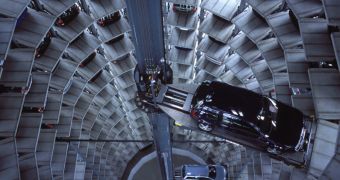A revolutionary system that involves actually being paid when you park your car, for helping the energy industry run smoothly, is currently undergoing development, being in test phase. Moreover, the received sums would be quite substantial, definitely more than what you pay for the parking ticket or than the fines for parking rules violation (about $300 every month). Sounds interesting? Read on.
Actually, the main concept implies that you own an electric vehicle (EV), or at least a plug-in hybrid electric vehicle (PHEV – which are 10 times less efficient, though). However, if this is not the case with you (and it most probably isn’t, at least not yet), don't worry – it is believed that in a matter of years this kind of cars will replace the ones that currently run on fossil fuel. A project dubbed Vehicle to Grid (or V2G) takes advantage of the 90 percent of the time when you're actually not using the car, and provides an answer to the question of Jeff Stein from the University of Michigan, “What if it could work for you while it sits there?”
Basically, the vehicle would be plugged into a socket, ensuring the flow of electricity between its battery and the power grid, acting as temporary energy storage device, and making backup electricity generators fade into oblivion. While also making EV ownership more profitable, “utility companies could benefit from having a million batteries for storing electricity,” believes Stein. The main goal of the project is to smoothen out the fluctuations in electricity, caused by altering the balance between supply and demand.
Having a large number of cars that would ensure an instant supply of energy when the regular one fails to meet demand is not the only reason behind the project. In fact, the spreading of the V2G-equipped EVs would also ensure a better usage of electricity, considering that your car could provide some of the energy needed by electric appliances in the surrounding area, which means that the energy from a centralized electrical storage facility wouldn't need to travel so far. And one more thing, since you’re definitely thinking about it: your battery will not be depleted. In the worst case scenario of a fluctuation, it could reach a 20% drop in energy content.
Currently, the last details of the project are being discussed, such as a better monitoring plan for involved vehicles (which cars to supply power, and for how long), or whether the process affects the battery life in any way. If all goes well and, of course, depending on the EV impact and implementation on the market, the project could be up and running in about 5 to 10 years.

 14 DAY TRIAL //
14 DAY TRIAL //